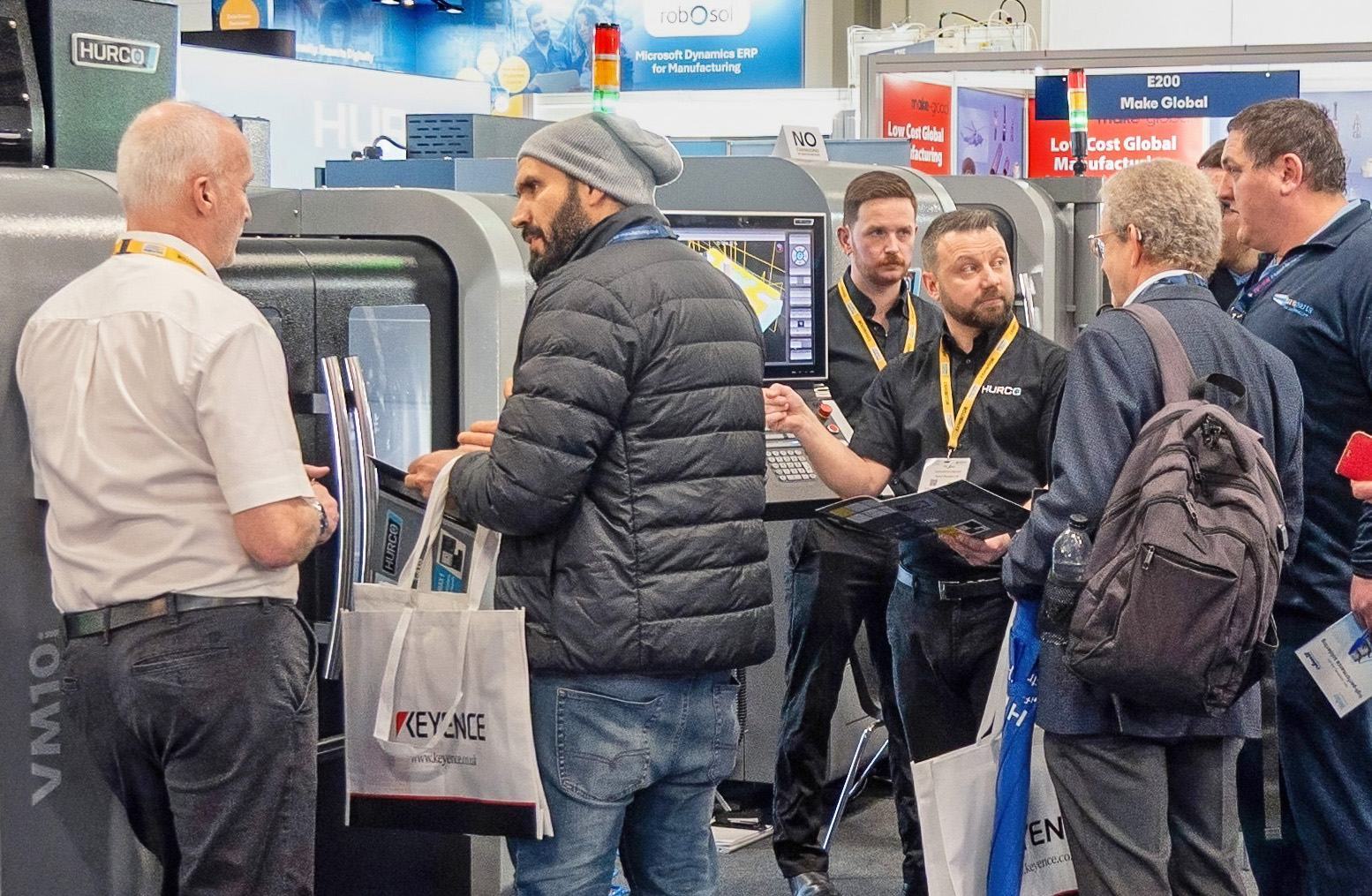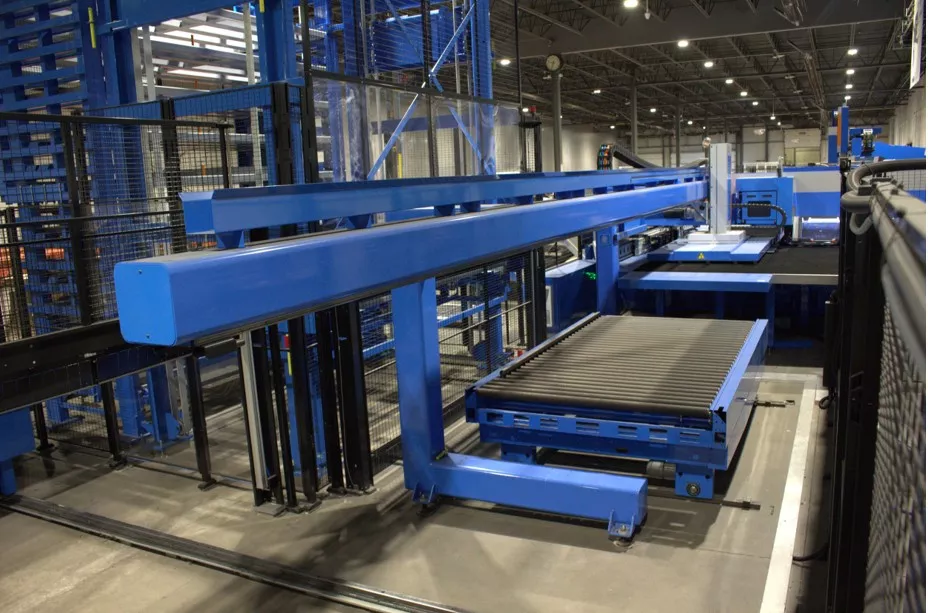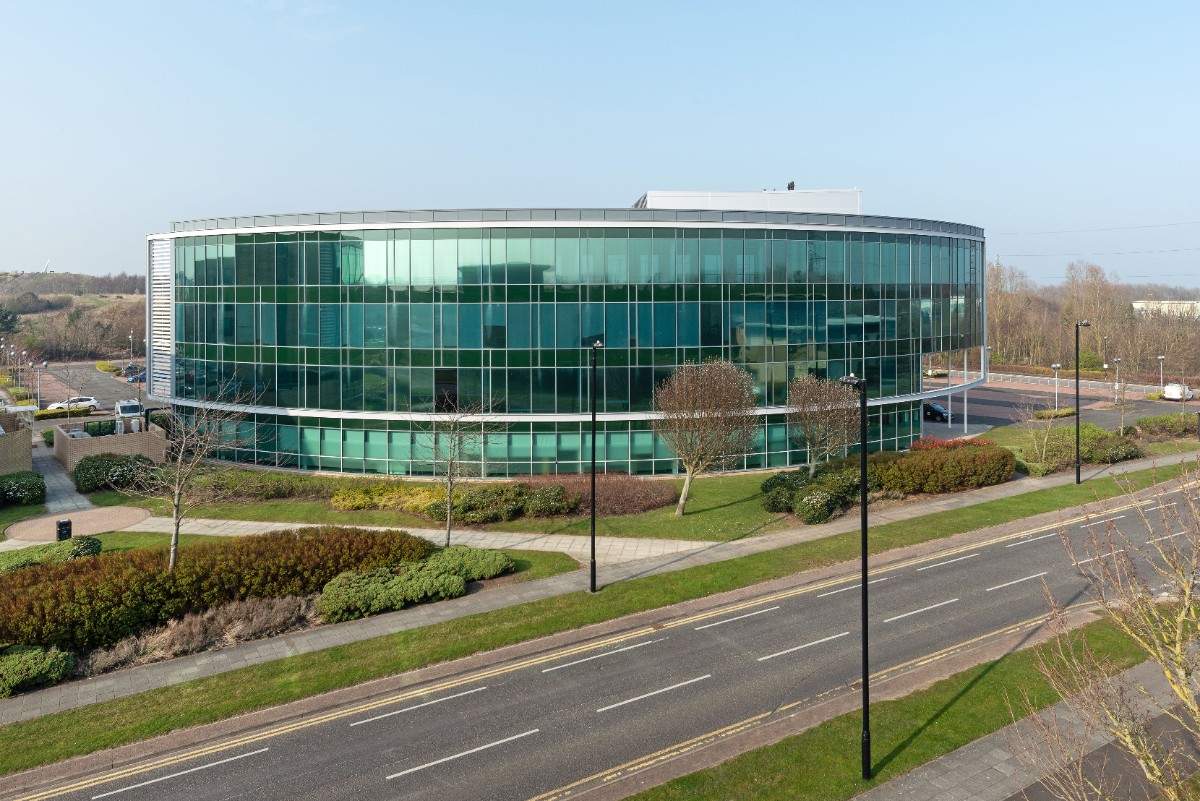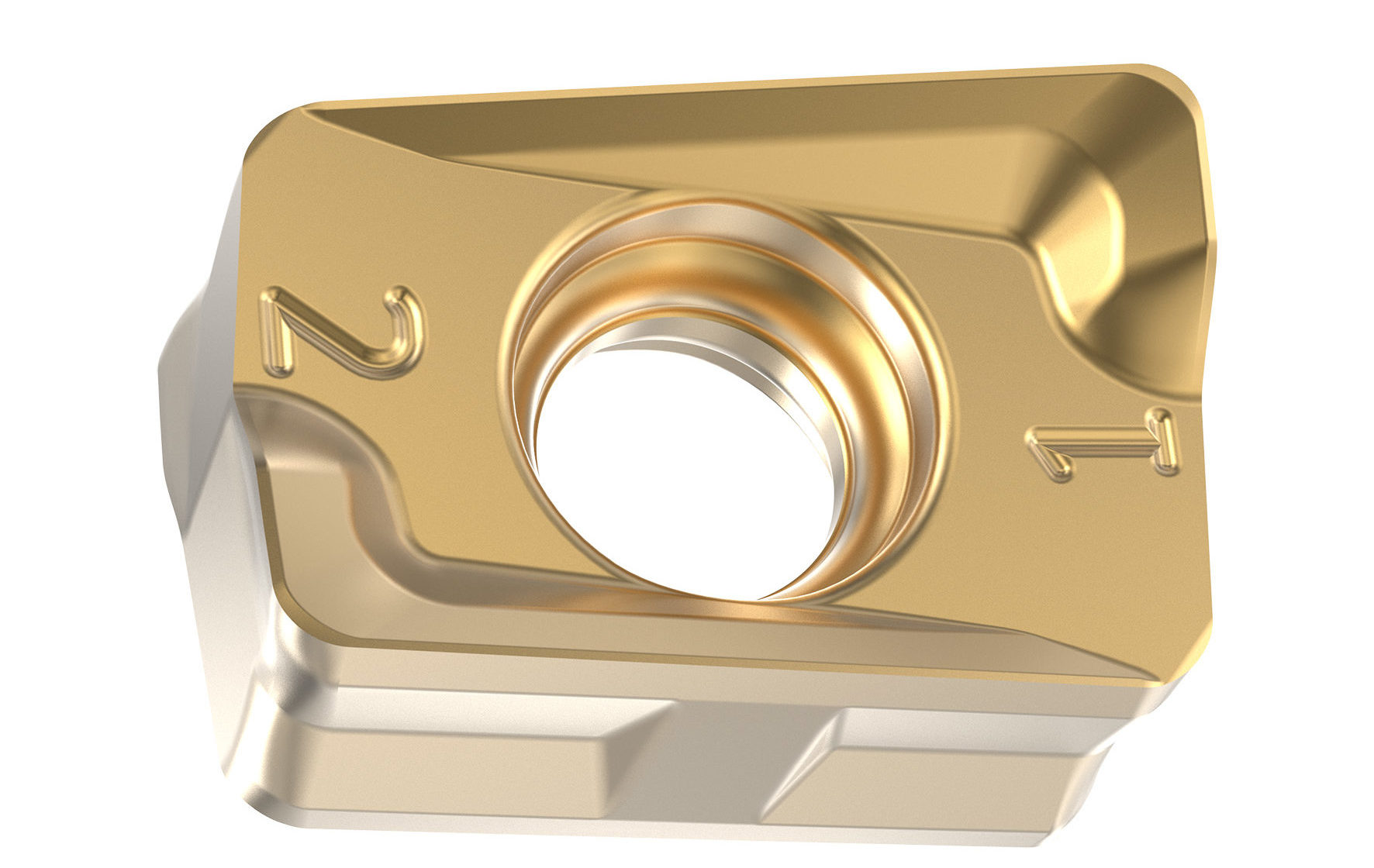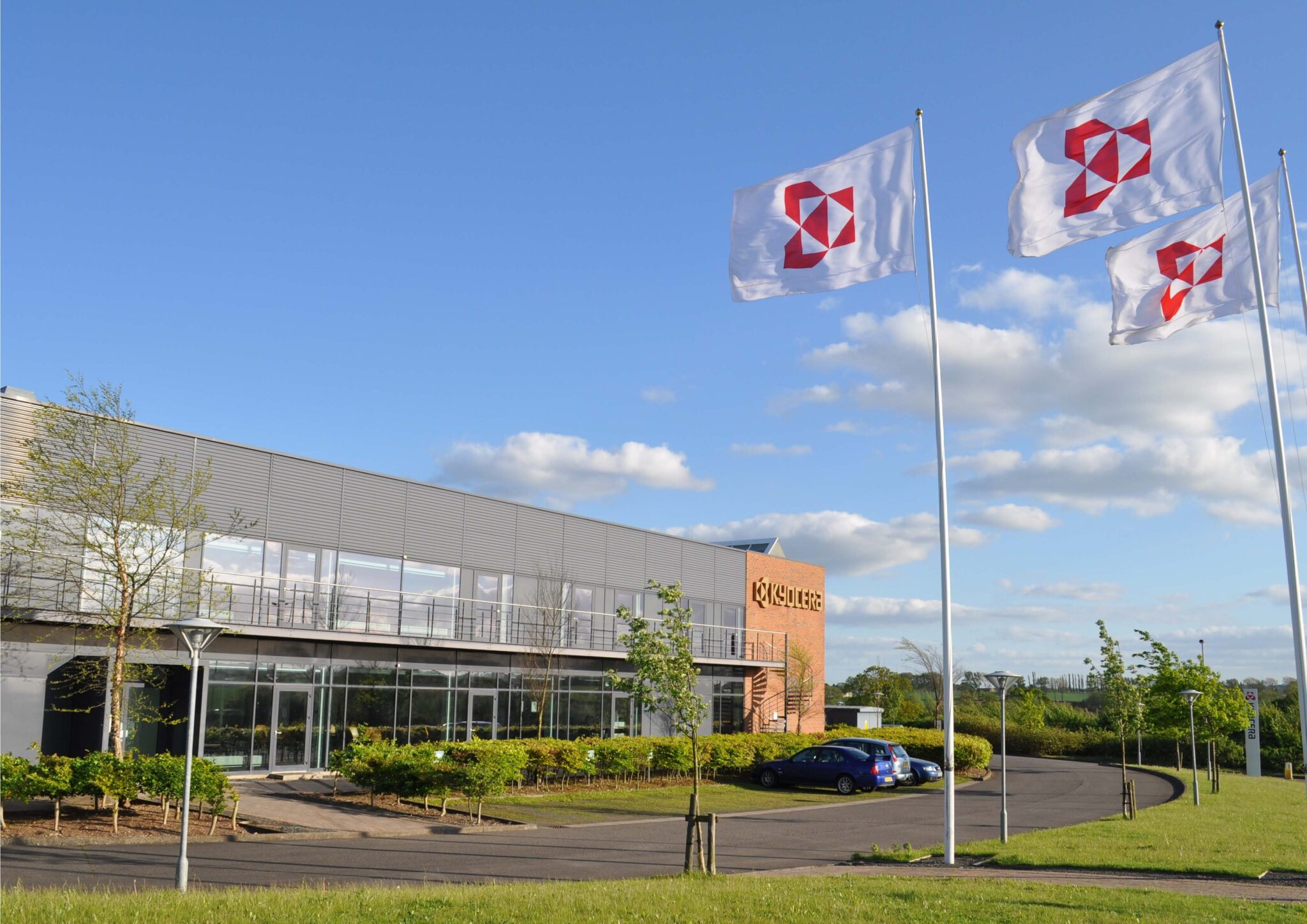From Race to Road

‘How cutting-edge materials from the racetrack could decarbonise the school run’
The automotive industry faces an unprecedented challenge: delivering high-performance, lightweight vehicles while meeting increasingly stringent sustainability targets. For many manufacturers, this has led to partnerships with advanced materials companies, using the most demanding testing grounds available — professional motorsports racing — to validate technologies that will eventually transform how everyday vehicles are built. Through rigorous testing on racetracks around the world, sustainable composite materials are no longer experimental concepts, but production-ready solutions poised to revolutionise mainstream automotive manufacturing.
From track to tarmac: racing as technology incubator
The collaboration between Swiss cleantech company Bcomp and Japanese composite specialist Tras exemplifies how racing partnerships create direct pipelines for sustainable innovation. Tras is one of Japan’s leading composite specialists and a 20-year collaborator of Suzuki’s motorsport teams. Originally, Tras used Bcomp composite materials to develop prototype bodywork for the Suzuki ECSTAR MotoGP team. This technical demonstration kick-started the collaboration between Tras and Bcomp, producing race-ready components for team Suzuki CN CHALLENGE for the 2024 and 2025 editions of the Suzuka 8 endurance race. This event is Japan’s premier motorcycle endurance event and a prominent round of the FIM Endurance World Championship. The race subjects both riders and machines to eight continuous hours of competition in intense summer heat, making it an ideal proving ground for advanced materials under extreme conditions.
This rapid evolution from experimental applications to supplying natural fibre composite bodywork for high-profile racing programs in just two years demonstrates the accelerated development cycle that makes racing a true testing ground for innovative materials. The Suzuki collaboration, featuring fenders, winglets, and fairings made from Bcomp’s flax fibre composites, proved that sustainable materials can withstand the punishing demands of endurance racing while delivering up to 85% CO2 reduction compared to traditional carbon fibre.
Beyond Suzuki, Tras and Bcomp also developed a unique natural fibre composite body for the 2025 Toyota HiLux AXCR championship, demonstrating the versatility of sustainable composites in rally racing conditions, where impacts, vibrations, and environmental extremes test every component to the limit.
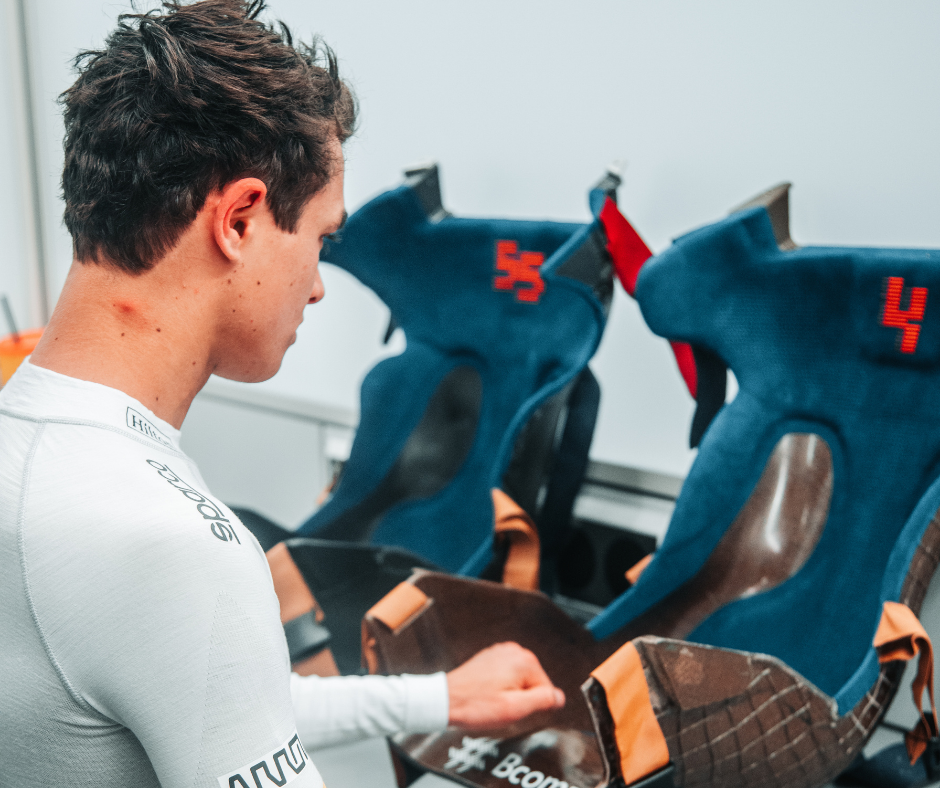
Advanced material engineering and racing performance metrics
The unique properties of Bcomp’s natural fibre composites, derived from flax fibres, enable engineering solutions that can match and even exceed traditional materials while delivering environmental benefits. They must meet uncompromising performance standards as milliseconds separate victory from defeat.
Bcomp’s flax-based reinforcement fabric, ampliTex™ and its reinforcement grid, powerRibs™, have been continuously refined through racing collaborations. ampliTex™ is a woven fabric made from flax fibres that can be configured in a wide variety of patterns. When combined with resin, it creates lightweight, stiff composite panels used for larger, flatter surfaces like body panels, seat shells, and fairings. For additional reinforcement, powerRibs™ provides structural support that mimics leaf veins, strategically placed to achieve desired stiffness specifications in load-bearing areas of composite parts.
This accelerated validation process has demonstrated exceptional stiffness-to-weight ratios comparable to thin-walled monolithic carbon fibre parts while offering superior vibration-damping properties — particularly valuable in racing where drivers need to sustain speed comfortably, and in production vehicles where it creates quieter, more comfortable experiences for passengers.
Beyond weight savings, the natural fibre composites exhibit ductile fracture behaviour with blunt edges, preventing the sharp debris generation associated with carbon fibre failures. This safety characteristic reduces racing downtime and has direct implications for production vehicle safety standards.
Motorsports as the ultimate validation ground
Motorsports racing provides the most rigorous testing conditions for advanced materials. Racing partnerships create what engineers call “accelerated real-world testing,” where years of typical use are compressed into single racing seasons under extreme conditions.
McLaren Racing successfully integrated Bcomp’s solutions into Lando Norris’s Formula 1 seat and bodywork, Škoda used ampliTex™ and powerRibs™ to create the Fabia RS Rally2 car bodywork at the Enyaq RS Race, and the DTM series implemented natural fibre components as mandatory specifications across all competitors.
The strongest validation example is BMW’s collaboration. In 2019, Bcomp and BMW Motorsport pioneered the use of CO2 reduced materials in Formula E by using ampliTex™ and powerRibs™ materials to build a high-performance cooling shaft for the BMW iFE.20 race car. The 2022 BMW M4 GT4 brought the partners closer to the road, featuring more natural fibre parts than any GT race car to date — inside and out. This racing success transformed into BMW Group committing these materials to production road car exteriors within three years.
When manufacturers and world-leading OEMs stake their competitive reputation on sustainable materials across diverse platforms, they create compelling proof points throughout the automotive supply chain, demonstrating that high performance and environmental responsibility are competitively advantageous.
Manufacturing scalability and industry integration
Racing partnerships don’t just validate materials; they pioneer the manufacturing processes that enable mass production. Customer collaborations have enabled Bcomp to perfect production techniques that deliver consistent, high-quality results at both racing speeds and automotive volumes.
ampliTex™ and powerRibs™ are now fully validated for large-scale integration into existing automotive production processes, with IATF 16949 certification, the industry’s most respected automotive quality standard. They offer UV and ageing resilience while maintaining racing-proven performance characteristics.
The supply chain foundation also supports scalability. Bcomp sources flax from companies adhering to the Masters of Flax Fibre® certification scheme, ensuring traceability and quality. Flax’s low water requirements and drought resistance make it a resilient crop choice in the face of climate change, providing supply security for automotive manufacturers planning long-term sustainable material strategies.
Racing success drives automotive adoption
The automotive industry is witnessing accelerated adoption of racing-proven sustainable materials. The visibility and credibility generated by high-profile racing partnerships create market pull that extends beyond environmental considerations to performance differentiation.
Recent announcements from major automotive manufacturers indicate this trend is accelerating. Beyond BMW Group’s commitment to natural fibre composites in interior and exterior parts of future vehicles, Volvo, CUPRA, and Polestar have already integrated these materials into the interior parts of series vehicles. This demonstrates how racing success continues to build confidence for broader applications.
For interiors, Bcomp’s thermoplastic natural fibre composites also offer circular economy benefits, with production scrap recyclable into base materials for second-life applications, which support automotive manufacturers’ sustainability targets and regulatory compliance strategies.
Production reality accelerated by racing innovation
Racing partnerships represent more than technological collaboration, they’re driving innovations that can transform mass production and make the school run more sustainable. By demonstrating that high performance and environmental responsibility can coexist under the most demanding conditions, these partnerships are accelerating the adoption of technologies that will transform how everyday vehicles are designed, manufactured, and experienced by drivers worldwide. In the race toward sustainability, motorsports innovation will lead the way for automotive trends.

